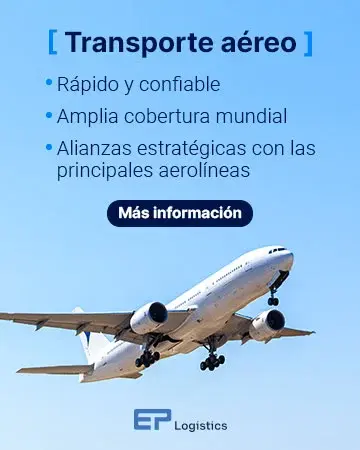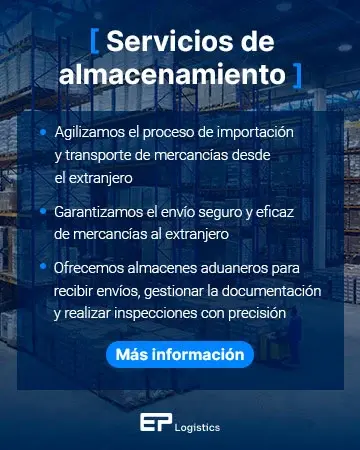Most businesses eventually reach a point where they need to partner with a third-party logistics (3PL) provider. Choosing the right one is one of the key decisions that will influence your entire supply chain’s efficiency, performance, and costs.
Let’s look at the key areas a 3PL covers, and the criteria you should focus on to choose a reliable partner.
Why Selecting the Right 3PL Partner Is Critical for Business Success
A 3PL is a key partner that can help your business grow or sink if picked without a thought. Their job is to handle logistics operations smoothly and efficiently on your behalf, for example, making sure your:
- Supply chain runs without trouble
- Goods are safely stored and moved when needed
- Shipments stay compliant with customs regulations
- Goods are moved easily across borders, avoiding delays and penalties
- Supply Chain Management efficiently stores, stocks, transports, and delivers your products
The performance of your 3PL partner influences your order fulfillment speed, customer satisfaction, brand reputation, and even your profits. Poor 3PL selections often lead to inventory errors, delays, loss, and broken customer trust.
That’s why getting familiar with how they work, their services, common red flags and challenges faced, pricing, and other factors is important.
Creating 3PL selection criteria, based on your company’s needs, budget and goals, will help you not only to find a partner that works for you, but also one that is experienced, reliable and trustworthy.

7 Essential 3PL Selection Criteria for Evaluating Logistics Providers
Here are the main areas to pay attention to and include in your 3PL selection criteria when performing your logistics service provider evaluation and comparison:
1. Industry Experience and Expertise
3PLs are not one-size-fits-all. Depending on the industry your business belongs to, you might have different or specific needs to target.
For example, you might find providers that have a great reputation in local business, but if you are engaging in international trade, you will need a partner with experience dealing with customs regulations, taxes and tariffs, and intermodal shipping.
Another example: if you deal with perishables, you would need a provider that offers temperature-controlled warehouses and transport, as well as road freight or air freight for urgent shipments.
Questions to ask the prospective 3PL:
- What industries do you specialize in?
- Can you share case studies involving businesses like ours?
- What’s your experience with shipping and handling of “this” specific product?
- Do you have experience in international cross-border logistics?
- Are you experienced with e-commerce?
2. Technology Capabilities and Integration
Choosing a 3PL partner with the right tools can make a huge difference in the speed of your operations and the headaches you can avoid.
Modern logistics providers use advanced technologies to provide you with real-time visibility, reporting, automations, and integrations.
They will offer services with logistics integration capabilities to simplify the process, better handle challenges, make accurate predictions based on historical data, etc.
At EP Logistics, our services include these advanced technologies to help enhance your logistics operations management, accuracy and give you the competitive advantage you need.
Questions to ask:
- What warehouse management technology do you use?
- How do your systems integrate with our current ones? (e.g., ERP, e-commerce platforms)
- Can you provide real-time shipment tracking and inventory updates?
- Do you use data analytics and AI tools?
3. Scalability and Flexibility
Another main factor to include in your 3PL selection criteria is how scalable and flexible your future 3PL is. You want to ensure your partner will be able to:
- Grow with you and change with your business, whether it’s scaling up or down.
- Can expand into new markets with you.
- Is capable of handling peak seasons, holidays, and sales events.
Questions to ask:
- How do you handle sudden volume increases?
- Can you support temporary warehousing or fulfillment overflow?
- Are you able to flex services based on demand?
- Do you offer flexible storage options?
- Are your services customizable?
4. Reliability and Performance Metrics
A good 3PL partner will have a trackable service history and logistics performance metrics. You want to examine their execution through the years, months, and seasons to check if they are consistent, and as a sign that they care about performance.
Questions to ask:
- What’s your on-time delivery rate?
- How do you handle delays or inventory errors?
- Can you share historical data or client performance reports?
- How often do you perform audits and updates on your services?
5. Network and Infrastructure
Geographic coverage and transportation resources are another key aspect to add to your 3PL selection criteria . You will want to ensure your 3PL’s fulfillment centers and warehouse location selection is strategically based on your clientele and that their transportation network is fast and reliable to keep your customers happy.

Questions to ask:
- Where are your warehouse locations?
- Do you offer both domestic and international shipping?
- What’s your coverage for expedited or specialty shipments?
- What types of freight do you handle?
6. Cost Structure and Pricing Transparency
Beware of hidden fees and disclosed charges. A reliable 3PL will be transparent when disclosing all prices and will be clear about terms and policies.
Ask to review contracts and for the 3PL to clarify any questions you may have, as well as asking how fares could change under different scenarios so you know what to expect.
Questions to ask:
- Are there any hidden fees beyond the rate card?
- How do you approach 3PL contract negotiation?
- Are your plans flexible?
- What happens if I need to scale up or down?
- What are your cancellation policies?
7. Customer Service and Communication
Your 3PL should feel like a partner, always be open to answering your questions, and be willing to work with you through challenges.
This is why working with an experienced partner, like EP Logistics, can make a difference, because you’ll have peace of mind knowing that your 3PL is an asset for your business.
Questions to ask:
- Who will be our point of contact?
- What’s your standard communication protocol during disruptions?
- How do you handle client escalations?
- Which other channels can I reach out through?
Red Flags to Watch For During the 3PL Selection Process
Even if a logistics provider sounds impressive during a presentation, it’s important to ask specific questions related to your industry and product type.
References are a must, too. Researching will help you determine if there have been other satisfied clients or common issues they are bringing up, and give you a glimpse of how they respond to conflict resolution. Look for backed experience and a good reputation.
Here are some common red flags to look out for during your 3PL vendor selection process:
- They have no references
- The information shared lacks transparency
- Inconclusive answers to tech or pricing questions
- Poor reviews, generic answers
- Hesitation to share performance data, contracts, and other documents
- They don’t ask questions about your goals, business, or expectations
Creating a Structured 3PL Evaluation Process
A good strategy to compare 3PL providers is creating a request for proposal (RFP) that includes both your supply chain outsourcing criteria and 3PL selection criteria:

- Define your needs. Including fulfillment, shipping volumes, delivery timelines, and any special product handling requirements.
- Create your RFP. Your Request for Proposal (RFP) should include your technology integration needs, warehouse locations of interest, expected key performance indicators (KPIs), services, etc.
- Shortlist. Review the proposals you receive and narrow them down, discarding those that don’t match what you require.
- Visits or tours. Ask to tour the facilities in person or virtually, so you can see their operations and confirm their claims.
- Request a demo. For tech and software to check how well it will integrate with yours before signing up. Especially if you require e-commerce fulfillment services and inventory management.
Logistics partner assessment. To compare providers, give scores to each one based on your 3PL selection criteria to help you make a decision more objectively.
How EP Logistics Meets Critical 3PL Selection Criteria
With over 20 years of proven experience, backed by happy customers all over Mexico and the U.S, at EP Logistics, we ensure our services are tailored to your specific business needs.
They also come integrated with advanced technologies designed to boost your supply chain speed and reliability to increase your customer satisfaction. Our team is also experienced in cross-border processes and regulations. We offer:
- Expertise in different industries, including e-commerce, retail, manufacturing, electronics, and many more
- Advanced Warehouse Management Systems with real-time data visibility and data-driven history
- Logistics integration capabilities with your platforms to easily enhance them
- Specialized cross-border customs expertise to simplify trade and avoid unnecessary penalties or delays
- Strategic warehouse location selection across Mexico and the U.S
- Transparent pricing
- Scalable third-party fulfillment requirements and options
- A wide network of carriers and transportation
Making Your Final 3PL Selection Decision
When it is time to make the final decision and make your 3PL vendor selection, consider the following before signing a contract:
- Does this partner meet the non-negotiable aspects of your 3PL selection criteria?
- Were they able to share success cases?
- Is their technology compatible with your current systems?
- Is their infrastructure scalable?
At EP Logistics, we are committed to helping your business grow. From advanced technology integrations for e-commerce fulfillment, road, air, and ocean freight, flexible warehousing solutions, and experienced customs brokerage services, we’ve got you covered!
Get in touch with our team at EP Logistics today, and discover all the available options to help you expand while optimizing your logistics operations and increasing your customer satisfaction.




